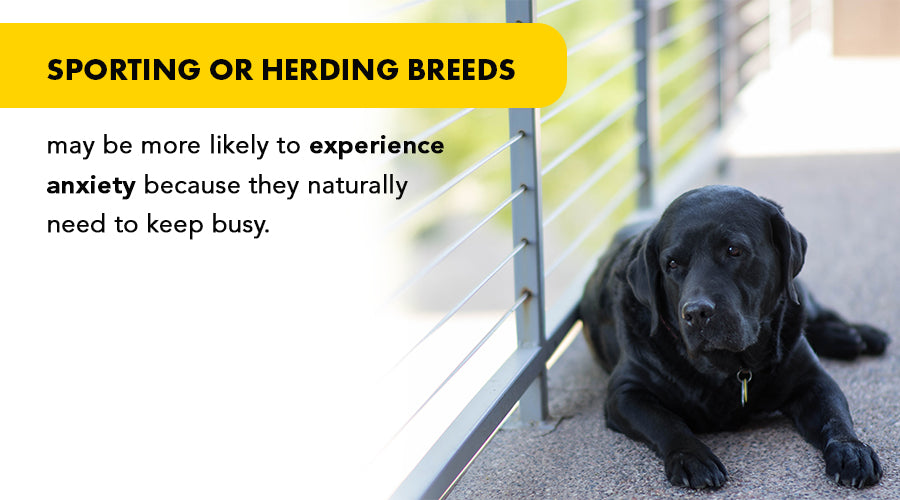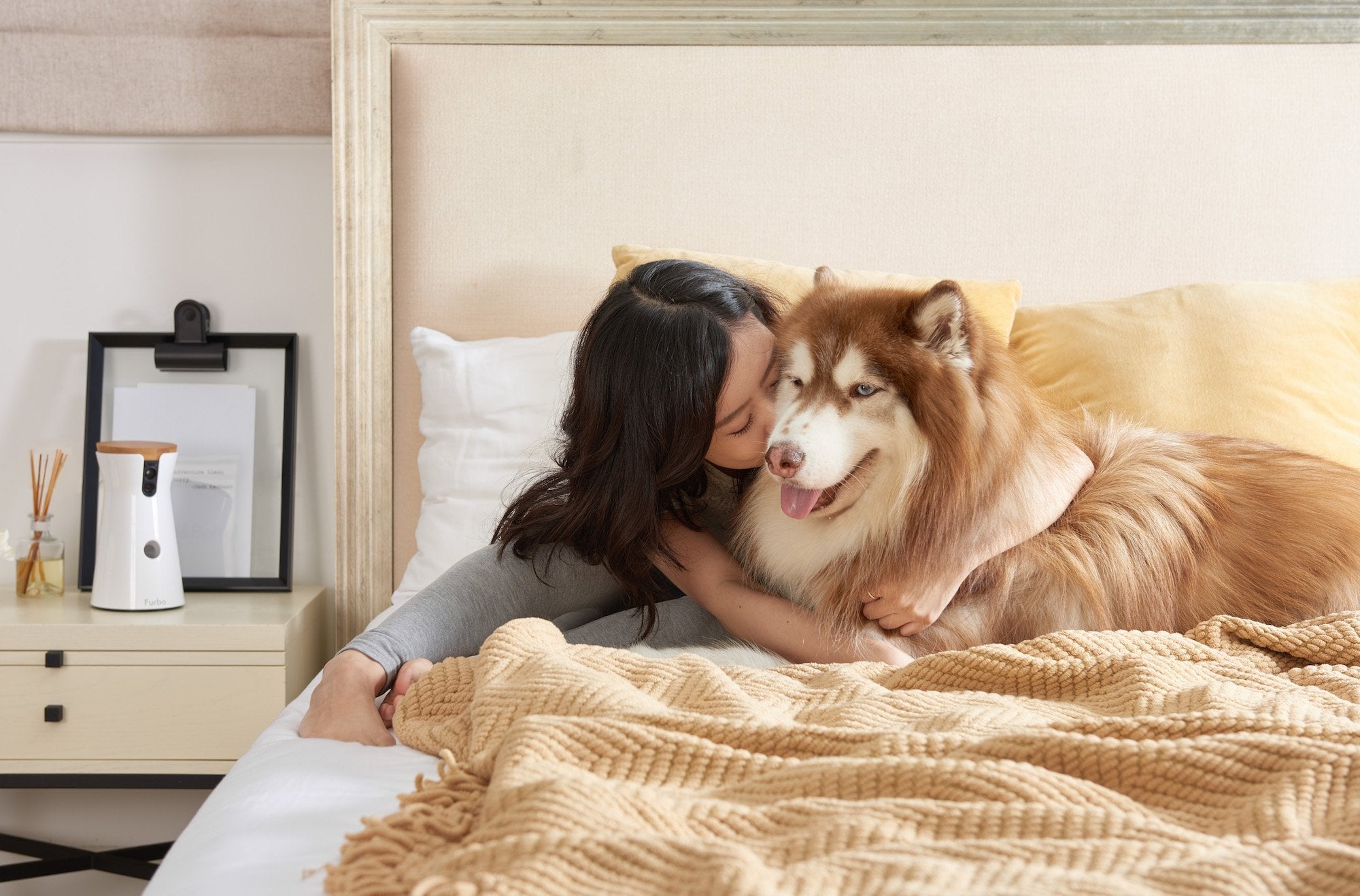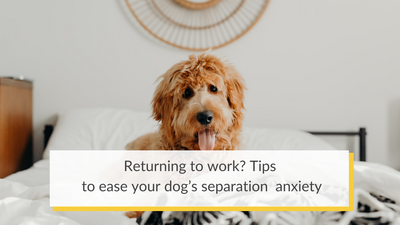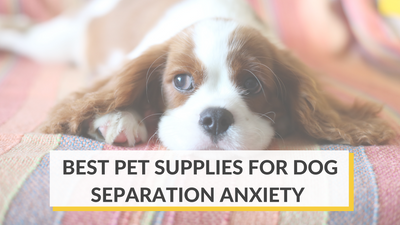As a dog lover, it is difficult not to adore all types of dogs, big or small. However, we all have our preferences for various reasons. For example, it might be hard to raise a Great Dane in a studio apartment. Nevertheless, no matter what type of dog your furbaby is, we understand the power they have to capture your heart.

Despite the fact that each breed has something unique to cherish, whether they are excellent hunters or oh-so-cuddly balls of joy, some breeds tend to be more anxiety-prone than others. On a similar note, outside factors can influence anxiety levels as well.
So what are some factors dogs with separation anxiety share? Although this is a general list, it may help you realize the possibilities:
- Smaller dogs seem to have more anxiety than bigger breeds.
- Smaller dogs have been found to be less obedient than bigger dogs, more excitable and more anxious due to owners typically being less consistent while training smaller dogs.
- Separation anxiety is more common in dogs who have experienced abandonment, trauma or loss in their lives.
- Separation anxiety is more common in dogs who are usually never left alone.
Next, we’ll look at breeds that are most and least likely to experience separation anxiety.
- Breeds Most Likely to Experience Separation Anxiety
The following breeds are more likely to experience separation anxiety because of genetics or because parents downplay behavioral issues.

Some larger breeds, like a German shepherd, experience separation anxiety because of lack of mental stimulation, while others may have developed a strong bond with their dog parents.
Small breeds likely to experience separation anxiety include:
- Chihuahua
- Dachshund
- Miniature dachshund
- Maltese
- Toy poodle
- Yorkshire terrier
Large Breeds who commonly experience separation anxiety include:
- German shepherd
- Labrador retriever
- Border collie
Your dog’s breed can play a role in whether they have anxious tendencies. However, you’ll need to consider their unique personality and temperament to determine if your pooch does have anxiety.
- Breeds Least Likely to Experience Separation Anxiety
Some breeds seem to naturally be a bit calmer than others. This may be the reason they have a higher tolerance for time away from their parents and tend not to panic when mom or dad walk out the door. These breeds include:
- Boston terrier
- Lhasa Apso
- Miniature schnauzer
- Bullmastiff
- Chow chow
- Chinese shar-pei
- Akita
- Basenji
- Pekingese
- Greyhound
- Great pyrenees
- Alaskan malamute
- Sealyham terrier
- Breeds Prone to General Anxiety
Certain breeds are prone to anxiety in general, and this may be due to the need for adequate mental and physical stimulation. In other words, if your furbaby falls under one of these categories, they need a job to do whether that be to shower you with affection or hunt for supper.
The American Kennel Club (AKC) recognized seven different dog breed groups. These are:
- Sporting
- Hound
- Working
- Toy
- Non-sporting
- Herding
- Terrier

As you’ll see below, sporting or herding breeds may be more likely to experience anxiety because they naturally need to keep busy. Some toy breeds are very attentive, affectionate and build strong attachments to their parents. Other breeds are generally anxious by nature.
Although we can’t all give a furbaby a job to do, we can help them get enough exercise and mental stimulation. Here are breeds who are prone to general anxiety:
- German shepherds: Herding
- Australian shepherds: Herding
- Labrador retrievers: Sporting
- Vizslas: Sporting
- Border collies: Herding
- Shorthair pointers: Sporting
- Cocker spaniels: Sporting
- Bichon Frise: Non-sporting
- King Charles spaniels: Toy
- Havanese: Toy
No matter what breed your furbaby is, or what dog breed group they belong to, though, they can experience separation anxiety. However, just like humans who must cope with anxiety, there is treatment available for our canine friends.
Table of Contents
- Introduction: How to Help a Dog With Separation Anxiety
- Chapter 1: Dog Separation Anxiety Symptoms
- Chapter 2: Medication for Separation Anxiety in Dogs
- Chapter 3: Best Toys for Dogs With Separation Anxiety
- Chapter 4: Dogs Breeds With Separation Anxiety
- Chapter 5: How to Help Puppies With Separation Anxiety
- Chapter 6: How to Train a Dog With Separation Anxiety
- Chapter 7: How Furbo Helps With Separation Anxiety
- Conclusion/Chapter 8: Why Some Dogs Have Separation Anxiety












